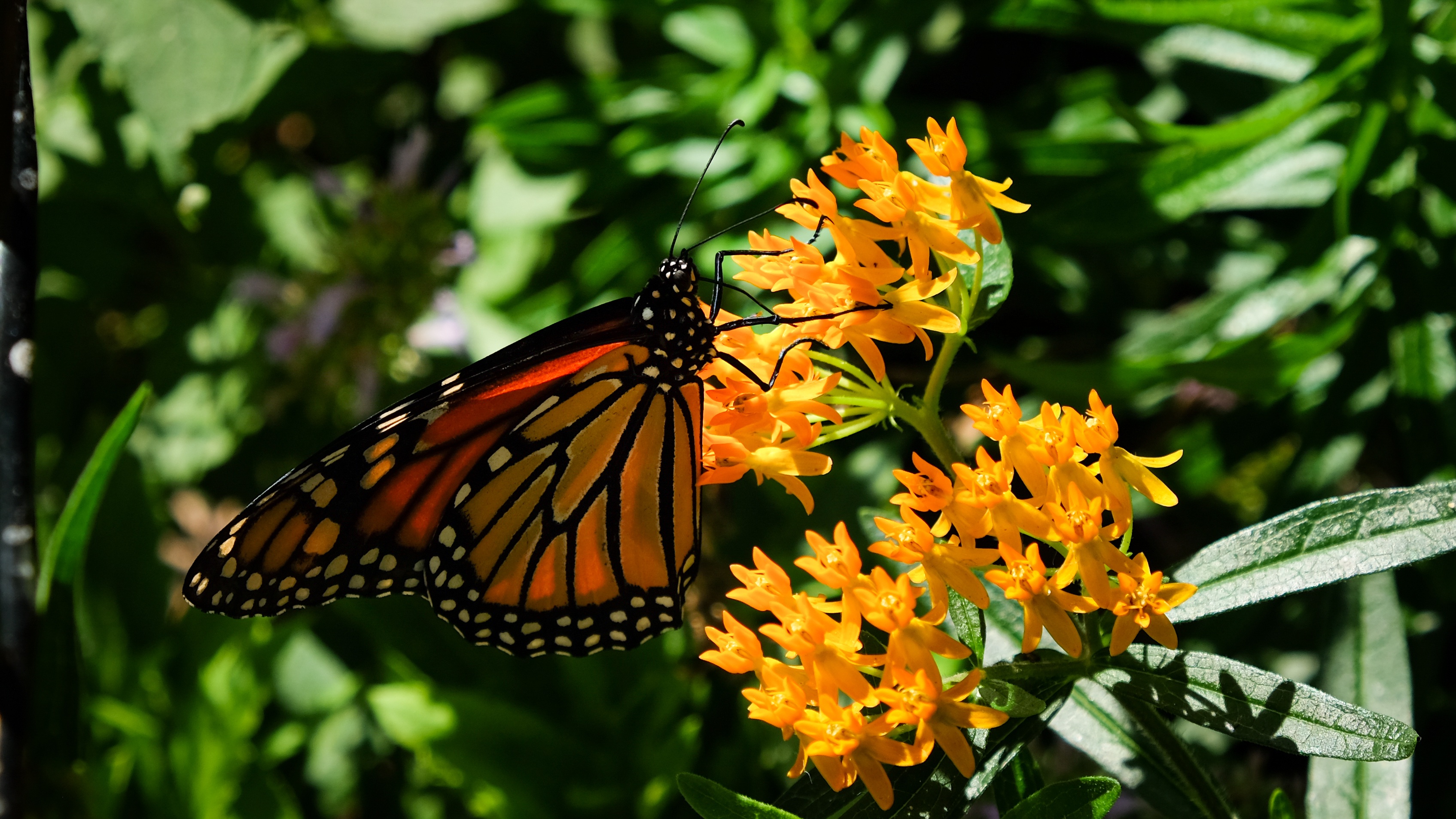This site uses cookies – Learn more.
The Park’s Monarch Magnets
The Park’s Monarch Magnets

For years conservationists had been warning us that monarch butterfly populations are approaching terrifyingly low numbers—then, earlier this year, they were listed as an endangered species on the IUCN Red List. While this news is disheartening, it is an important step in the history of the monarch butterfly.
Due to climate change, habitat deforestation, and pesticides, their numbers have declined significantly in the western and eastern parts of the United States. However, here at Madison Square Park, we have been lucky to see quite a few of these beautiful monarchs during the late summer season.
In accordance with our Guide to Restoring Native Plants in NYC, the Conservancy has been incorporating more native plants in the park. Asclepias incarnata, or swamp milkweed, is a favorite because it can handle wetter conditions and is therefore useful in planting beds that tend to stay moist. Swamp milkweed is beneficial to monarch butterflies as well.
During the late summer, the females lay eggs on the undersides of milkweed leaves. If you watch closely you can see the female land and just touch her ovipositor—the organ that contains the eggs—to the underside of the leaf. Most females will only lay one egg per leaf, or sometimes one egg per plant! Each egg will hatch a single larva that will pupate multiple times before taking on the appearance of the monarch caterpillar most recognized.
The caterpillar eats the milkweed leaves, which give them extra protection; the toxic chemical in milkweed makes the caterpillar—and later, the monarch butterfly—inedible to predators. Providing this important native plant species in the park ensures that monarchs passing through NYC will have the resources they need to continue their long journey.
Learn more from the Xerces Society here on the conservation of the eastern Mmnarch!



